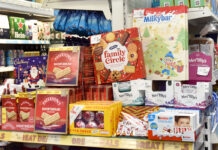Inflationary pressure hitting wallets

THE Covid crisis may have subsided, but the impact of inflation on consumer trends may just be beginning.
Survey data from Kantar has revealed rising inflation is at the forefront of consumers’ minds, with grocery inflation recorded at 5.2% – the highest figure since April 2012.
Fraser McKevitt, head of retail and consumer insight at Kantar, said: “What we’re really starting to see is the switch from the pandemic being the dominant factor driving our shopping behaviour towards the growing impact of inflation, as the cost of living becomes the bigger issue on consumers’ minds.”
Kantar also found take-home grocery sales in decline, down by 6.3% for the 12 weeks to 20 March, compared to 2021. McKevitt attributed this to consumers returning to out-of-home eating.
NielsenIQ data corroborated this, recording a 4.1% drop in grocery sales in the four weeks to 26 March, compared to 2021.
By category, Nielsen recorded beers, wines and spirits sales down 17.6% and confectionery by 21.9%; the steepest drops in category performance against last year’s figures.
Mike Watkins, NielsenIQ UK head of retailer and business insight, attributed some of this decline to shoppers adapting as the cost of living crisis starts to bite.
He said: “Whilst some of the changes in grocery spend will be due to consumers simply having a different basket mix compared with last year, our data also shows that consumers are now increasingly shopping for private label products as part of their coping strategy.”

















